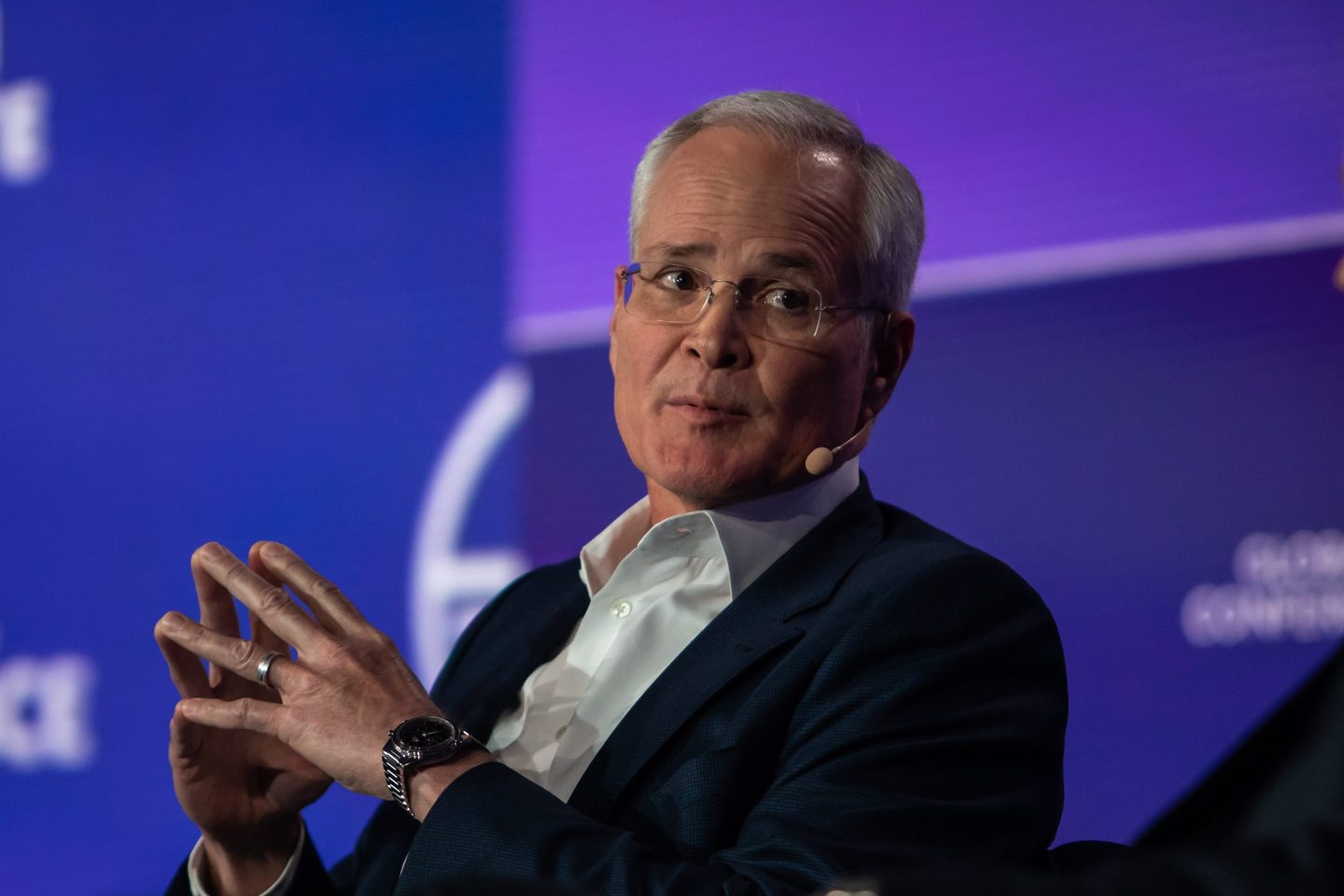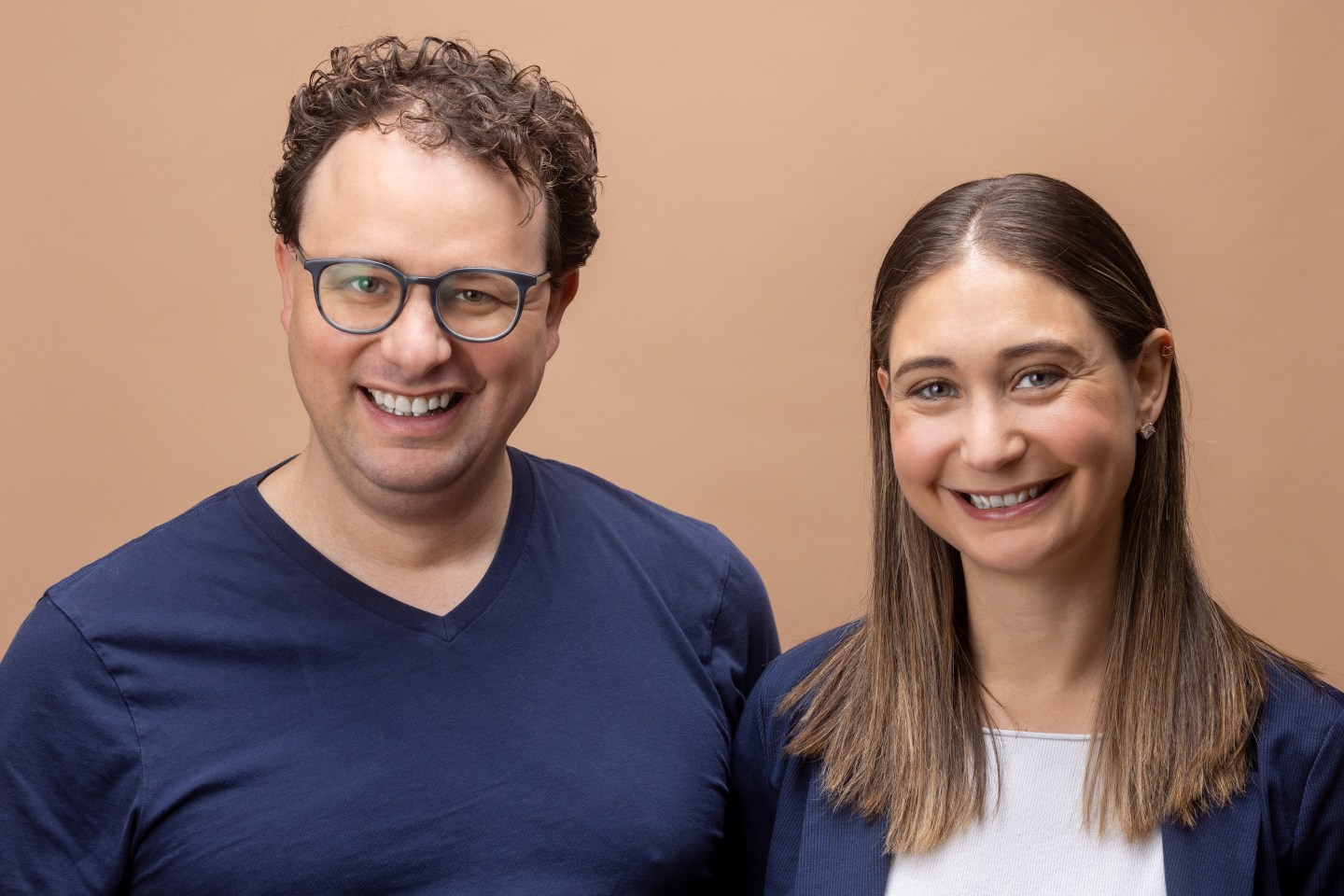Hi, it’s Tech editor Alexei Oreskovic filling in for David today.
It’s a sign of the times—in the last few weeks, my schedule has been filled with AI-focused conferences, dinners, and events. TED had an AI-focused conference here in San Francisco last week, featuring speakers such as DeepMind cofounder Shane Legg, OpenAI cofounder Ilya Sutskever, and LinkedIn cofounder Reid Hoffman. A week earlier, Seattle-based VC firm Madrona hosted its second annual Intelligent Applications Summit.
One of the big takeaways that I’ve heard again and again at all these events is how quickly things are moving. Consider that when Madrona had its first IA Summit in October 2022, ChatGPT hadn’t been released yet, and the event’s agenda was about different machine learning trends. This year, it was all about generative AI.
This breakneck pace of change is exciting, but it’s also a bit scary—whether you’re a company trying to figure out how to implement AI within your organization or your products, an investor wondering how to invest wisely on the technology trend, or a policymaker thinking of how to regulate AI.
As recently as nine months ago, many people were looking at Open AI’s GPT LLM as the main model. But today, said AWS SVP Matt Garman at the IA Summit, “You’re probably hard-pressed to find anybody that thinks there’s going to be one model.”
Mixtures, or “ensembles,” of different models are increasingly coming into play. But because the models themselves are constantly evolving, businesses building with AI need to continuously reappraise the individual models they’ve chosen to make sure each one is still the most appropriate.
One of the most memorable quotes that stuck in my mind came from Altimeter founder Brad Gerstner, who described the explosion of AI startups, many of them with massive valuations. Two “simultaneous truths” are in tension right now:
“One,” Gerstner said, “is that this is going to be the biggest thing of all of our lives. And on the second hand, 90% of this stuff won’t be here in five years.”
We (hopefully) will be here in five years, even as AI models, AI companies, and AI use cases continue to evolve and morph. AI is moving fast, whether we like it or not. Are we prepared to make sure it doesn’t break things?
With that, here’s today’s tech news.
Alexei Oreskovic
Want to send thoughts or suggestions to Data Sheet? Drop a line here.
Today’s edition was curated by Rachyl Jones.
NEWSWORTHY
Samsung’s AI opportunity. Samsung is bringing artificial intelligence to its newest smartphone line, according to a report from SamMobile that relies on an unnamed source. The Galaxy S24 will reportedly have generative AI capabilities from ChatGPT and Google Bard, as well as a text-to-image generator developed by Samsung. The phone line could rival the Google Pixel 8, which launched with AI features earlier this month.
Databricks went shopping. Databricks, the $43 billion analytics company, has agreed to acquire Arcion, which transfers databases across storage systems for companies, CNBC reported. The $100 million deal will help Databricks’ clients add their data to systems like Salesforce and Oracle, CEO Ali Ghodsi told CNBC. Last month, Databricks announced a $500 million funding round with investors including Nvidia and Capital One.
EngageSmart goes private. EngageSmart, the payments software company, is being taken private by Vista Equity Partners for about $4 billion, Reuters reported. In the latest tech sector buyout, shareholders will reportedly receive about $23 per share. The deal is expected to close in the first quarter of 2024.
ON THIS DAY IN TECH HISTORY
Hello iPod. On Oct. 23, 2001, Steve Jobs introduced the original iPod at a small press event in Cupertino, Calif. Then CEO of Apple, Jobs announced the MP3 player as a “quantum leap in listening to music,” with the ability to hold “1,000 songs in your pocket.” Following the likes of portable CD players and flash players, the iPod revolutionized the way consumers listen to music and laid the foundation for the iPhone. Apple has sold an estimated 450 million iPods since 2001. It stopped the production of new devices last year.
IN CASE YOU MISSED IT
One of the world’s biggest tech conferences is planning to go ahead in Lisbon after its CEO resigned over comments critical of Israel, by Anne D'Innocenzio
Biden administration will designate 31 ‘tech hubs’ in 32 states and Puerto Rico as part of 2022 CHIPS and Science Act, by Darlene Superville
Nvidia cofounder Jensen Huang says ‘nobody in their right mind’ would start a company, and he’d opt out if he could go back in time, by Chloe Taylor
BEFORE YOU GO
Big Tech’s big moment. It’s earnings week. Microsoft and Alphabet, Google’s parent, will report their latest financial results on Tuesday. Meta is scheduled for Wednesday, and Amazon is set for Thursday. Apple will hold off until next week on Nov. 2. While some analysts expect AI to again be at the center of earnings week (Alphabet executives said “AI” 82 times during last quarter’s earnings call), others add that the hype has diminished, and forward-looking statements about AI aren't enough to drive stock anymore.
In reference to Microsoft, Wolfe Research’s Alex Zukin wrote to clients last week: “While last quarter we were all busy revising up our estimates for how big Copilot can be, it seems investors have since tripped and fallen into the trough of AI disillusionment questioning both the actual functionality, the profitability, and ultimately the durable and sustainable competitive advantage,” MarketWatch reported. Investors may be better suited looking at current business numbers than suggestions about what Copilot and other AI tools could do in the future, according to Zukin.
This is the web version of Data Sheet, a daily newsletter on the business of tech. Sign up to get it delivered free to your inbox.













